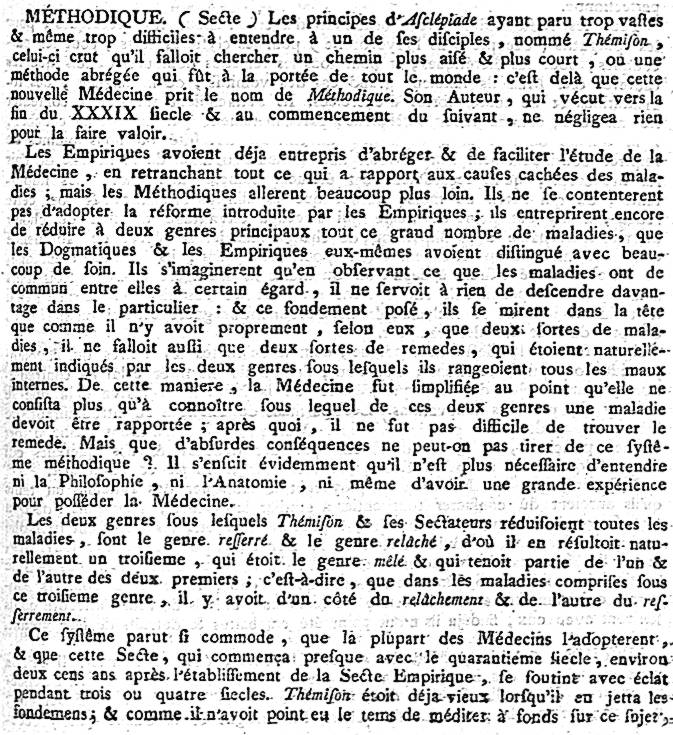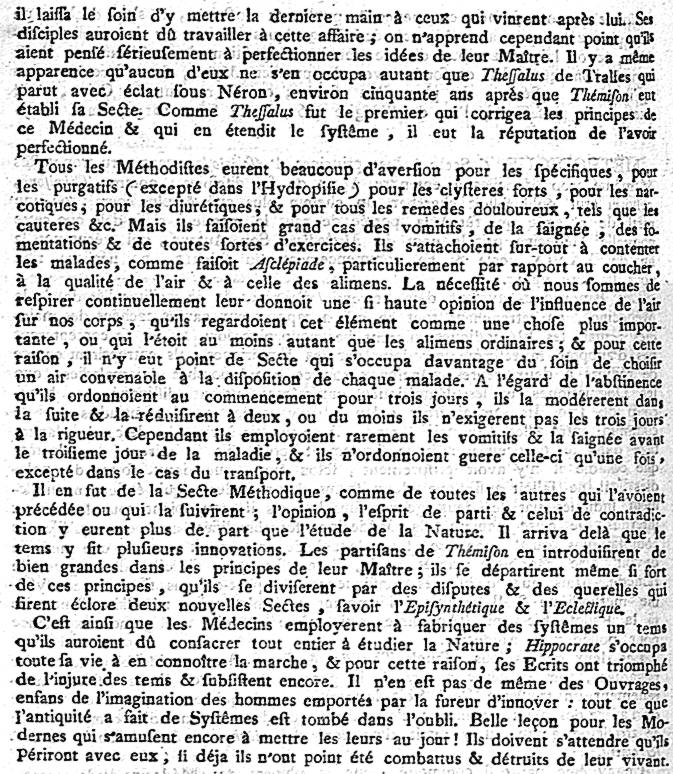Lessico
Sorano di Efeso
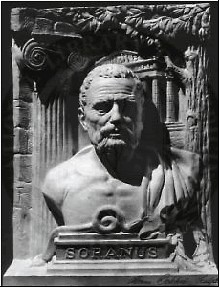
Medico
greco (ca. 90 - ca. 150). Esponente insigne della scuola metodica![]() e
continuatore della scuola di Asclepiade
e
continuatore della scuola di Asclepiade![]() ,
visse e lavorò ad Alessandria e quindi a Roma, ai tempi di Traiano.
,
visse e lavorò ad Alessandria e quindi a Roma, ai tempi di Traiano.
Diede i maggiori contributi nel campo della pediatria e soprattutto dell'ostetricia e ginecologia, delle cui scienze può esser considerato uno dei massimi esponenti dell'antichità.

Soranus, Greek physician, born at Ephesus, lived during the reigns of Trajan and Hadrian (AD 98-138). According to the Suda, he practised in Alexandria and subsequently in Rome. He was the chief representative of the school of physicians known as "Methodists." His treatise Gynaecology is extant (first published in 1838, later by V. Rose, in 1882, with a 6th-century Latin translation by Muscio, a physician of the same school). Also extant are parts of treatises On Signs of Fractures and On Bandages.
Of his most important work (On Acute and Chronic Diseases) only a few fragments in Greek remain, but we possess a complete Latin translation by Caelius Aurelianus (5th century). The Life of Hippocrates probably formed one of the collection of medical biographies by Soranus referred to in the Suda, and is valuable as the only authority for the life of the great physician, with the exception of articles in the Suda and in Stephanus of Byzantium (s.v. Køs). The Introduction to the Science of Medicine (V. Rose, Anecdota graeca, ii. 1870) is considered spurious.
In the history of Greek medicine, the Methodists were a school of physicians. They emphasized the treatment of diseases rather than the history of the individual patient.The only writing by a Methodist that has survived is by Soranus. Galen describes their beliefs, but is strongly opposed to them, and may not be describing them accurately. The core theory was disruption of the normal circulation of 'atoms' through the body's 'pores' caused disease.
Dictionnaire
historique
de la médecine ancienne et moderne
par Nicolas François Joseph Eloy
Mons – 1778
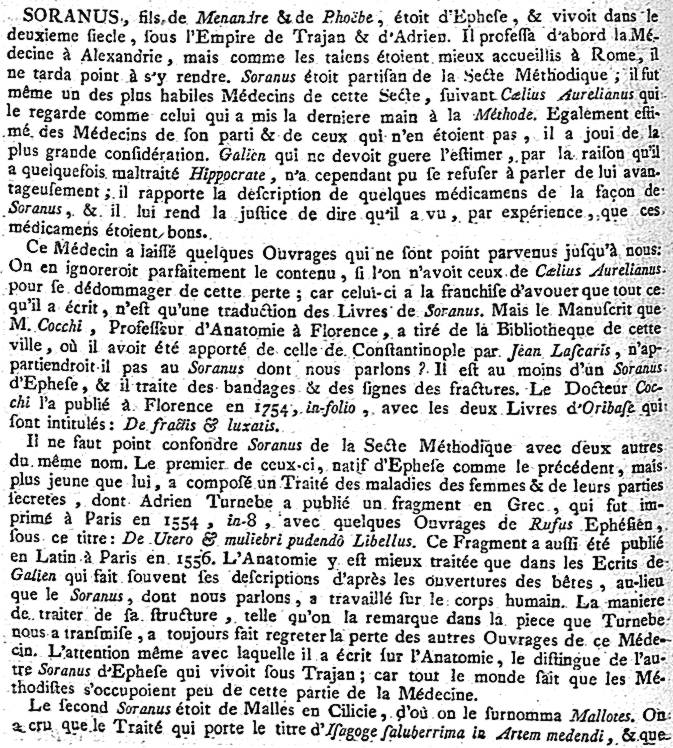
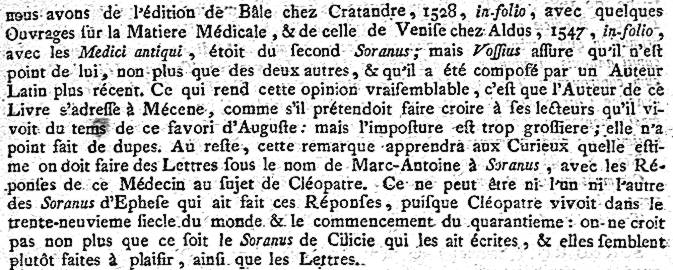
Dictionnaire
historique
de la médecine ancienne et moderne
par Nicolas François Joseph Eloy
Mons – 1778
